Math&Beyond UPV Cycle
Our cycle, co-organized in collaboration with the Department of Applied Mathematics and the Institute of Multidisciplinary Mathematics at UPV, features cross-disciplinary events focused on research and dissemination of mathematics.
International Women’s Day and International Day of Mathematics 2024

March 21, 2024, at 13:00
Projection Room, ETSA-UPV
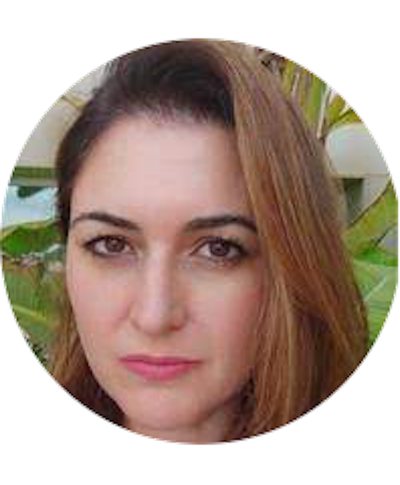
🎓 Lorena Segura
Universitat d'Alacant
Graduated in Mathematics with a specialization in Computer Science from the Complutense University of Madrid, and holds a doctorate from the University of Alicante with the thesis "Epistemological Considerations on Some Items of the Foundations of Mathematics," which received the extraordinary doctoral award. Currently, she is an Associate Professor in the Department of Applied Mathematics at the University of Alicante and is part of the research group Systemics and Cybernetics. Some of her research lines include mathematical epistemology and general systems theory and applications. Lorena is a co-founder of the mathematics outreach group Dimates, gives numerous lectures, courses, and has various publications. She is also a regular collaborator with the 11F initiative and the Estalmat program in the Valencian Community.
Mathematics in the feminine
If we were to ask anyone on the street to name famous mathematicians, almost certainly the most common response would be Pythagoras, a mathematician we learn about in school. Conversely, it would be very difficult to find someone who could give us the name of a woman, and the same applies to any STEM discipline. Does this mean that women have not contributed anything to these areas? And if they have, why are we not familiar with their names and accomplishments? Moreover, what do current data on women in science tell us? What do studies say about this?
In this talk, we aim to provide some clues to address these questions and, at the same time, shed light on the biographies of some of the women who have made significant contributions to these disciplines throughout history.
International Women’s Day and International Day of Mathematics 2022

March 10, 2022, at 12:45
Projection Room, ETSA-UPV

🎓 Olga Gil Medrano
Facultat de Ciències Matemàtiques
Universitat de València
Since 2010, she has been a Professor (currently retired) in the Department of Geometry and Topology at the University of Valencia, where she joined the faculty in 1978. She holds a doctorate from the University of Valencia and Paris VI University Pierre and Marie Curie, and her research has focused on the field of geometric analysis.
From 2006 to 2009, she was president of the Royal Spanish Mathematical Society, and from 2008 to 2009, she was President of the Spanish Committee for the International Mathematical Union.
From April 2010 to March 2014, she served as Vice-Rector at the University of Valencia.
In 2021, she received the Medal of the Royal Spanish Mathematical Society.
Geometry and sculpture:
the science and art of shapes
🎨 The interaction between art and mathematics is well known and extends to all mathematical specialties and various artistic disciplines.
📣 In this talk, we will primarily focus on examples of sculptural works inspired by geometric concepts.
📐 Conversely, these works of art will help us visualize some results of geometry, such as the properties of ruled surfaces.
Roundtable: Mathematics, Rankings, and Dynamics of Complex Networks

June 18, 2021 at 12:00 PM
Streaming
🌐 A graph is a way to represent relationships among a set of elements. The properties of directionality and transitivity enable graph models to uncover relationships among elements that might otherwise appear disconnected or unrelated.
🧠 Complex networks are sets of many interconnected nodes that interact in some way. The study of complex networks aims to explain the processes that occur within them. Many systems can be described using complex networks, which topologically are graphs that require studying their dynamic characteristics: the Internet, the World Wide Web, the brain, disease transmission, energy networks, food webs, economic networks, data structures, and the omnipresent Big Data.
🗞️ The emergence of complex networks with similar characteristics across many fields of knowledge has led to the establishment of a set of common and important research problems in each area. This opens an interesting path for the development of new lines of work.
It’s a small world
Complex Networks and Rankings
And yet it moves:
Dynamics of Complex Networks
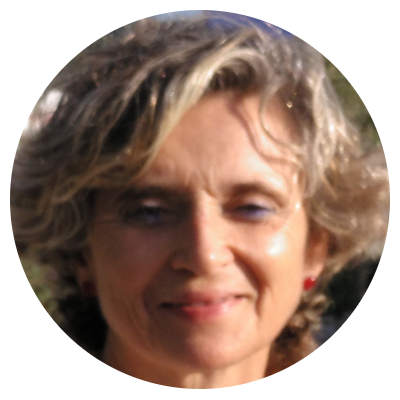
🎓 Cristina Jordán Lluch
Instituto Universitario de Matemática Multidisciplinar
Universitat Politècnica de València
We have always said that the world is a small place, but now it has been proven. There are all kinds of networks around us, both natural and man-made: the Internet, the World Wide Web, the human genome, social networks, biotechnological networks, financial networks, ecological networks...
The study of these networks is not new; data has been collected and analyzed for some time. However, it was not until the early 21st century that this study saw exponential growth, thanks to the advent of the internet and the ability to store and manipulate vast amounts of data in digital format cheaply and quickly. The aim of this talk is to present, in an accessible manner, the principles of what we know as network science and its current state.

🎓 Francisco Pedroche Sánchez
Instituto Universitario de Matemática Multidisciplinar
Universitat Politècnica de València
Nowadays, terms like "online" social networks, "digital" data, or "big" data seem redundant. However, in 2007, when I began to take an interest in social networks using Myspace as a model, the situation was very different. The classical disciplines of graph theory and flow networks were being expanded to include the specific study of network properties such as synchronization, percolation, community detection, network growth, centrality measures, robustness, failures, and more. Note that only nine years earlier, the Watts-Strogatz Small-World model had been introduced, and a successful search engine for web pages was patented. This is precisely what my presentation will be about: I will offer some insights into my work on the PageRank vector, as well as on measures for comparing ranking series.
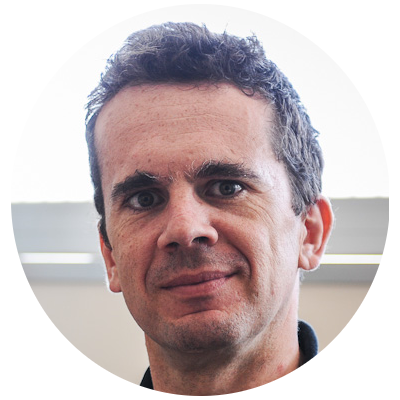
🎓 Miguel Robollo Pedruelo
Instituto Valenciano de Investigación en IA
Universitat Politècnica de València
An interesting aspect of complex networks is how their structure affects the way information propagates through them. Internet memes, fake news, sentiments, or viruses have very similar diffusion mechanisms. Studying these can help us determine if certain content will go viral, the evolution of an epidemic's spread, isolate individuals who engage in cyberbullying within a community, decide which individuals to vaccinate, or detect weak points in the power supply network. Combined with other techniques, such as agent-based models, simulations can be constructed to predict the behavior of these complex systems. Recent studies consider simplicial complexes to extend the properties to higher-order relationships.
Roundtable: Mathematics, Rankings, and Dynamics of Complex Networks

April 29, 2021 at 12:30 PM
Streaming
The pandemic has put the entire society in check. Scientists have not been an exception; the upheaval caused by the lockdown compelled them to work not only outside their comfort zones but also on lines and topics that were not the usual focus of their research. In this session, we aim to present various aspects of the pandemic response that share the common denominator of participants working on the issue under the premise of serving society. We will analyze mathematical models that address different aspects of the pandemic: the evolution of the number of infections, hospital management, or models for finding drugs.
Repurposed drugs against
SARS-CoV-2
Is this over already?
Kaplan-Meier curves as a model for managing healthcare resources
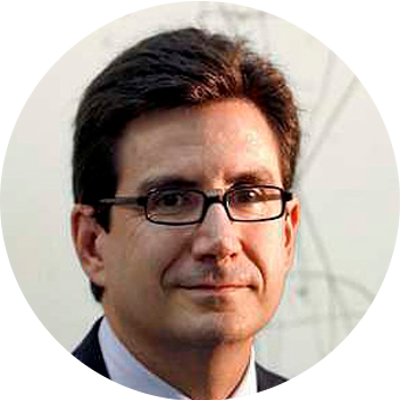
🎓 Jose María Benlloch Baviera
Instituto de Instrumentación para Imagen Molecular
Consejo Superior de Investigaciones Científicas
The emergence of the COVID-19 pandemic has generated an unprecedented response from the scientific community to develop drugs that could combat the virus or mitigate the effects of the disease, in addition to the development of specific vaccines. The CSIC organized a technological innovation platform during the early days of the pandemic, which has proven very effective in developing new techniques and drugs to fight it. During this talk, the main advances in the “Vaccines and Therapies” group will be described. In particular, the mathematical and experimental methods to find existing drugs in pharmacies that have antiviral action will be discussed.
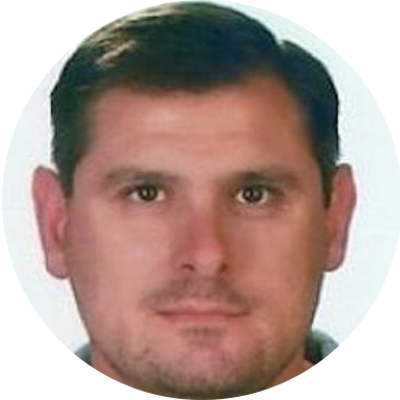
🎓 Rafael J. Villanueva
Instituto Universitario de Matemática Multidisciplinar
Universitat Politècnica de València
The COVID-19 pandemic has reached the one-year mark since a general lockdown was declared. There have been very tough periods with a high number of cases, hospitalizations, and deaths, such as March-April 2020 and November 2020-February 2021. And we still face restrictions during Easter. However, we are approaching the summer season, which last year provided us with some relief. But, is there still a long way to go with the pandemic? Apart from needing a bit more patience, it will depend on factors still under study, such as the effectiveness of the vaccine, how long the vaccine will protect us, and whether, after some time, we will be able to get reinfected.
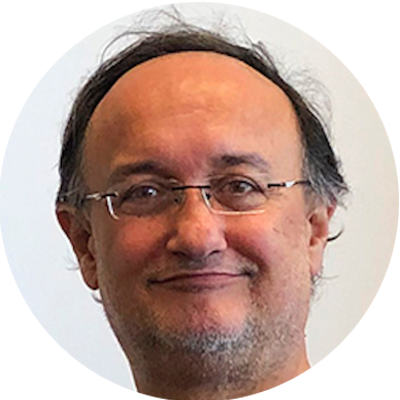
🎓 Enrique A. Sánchez Pérez
Instituto Universitario de Matemática Pura y Aplicada
Universitat Politècnica de València
From a mathematical standpoint, we have observed the extraordinary difficulty of obtaining reliable predictive models for forecasting the number of infected individuals and the general dynamics of COVID-19. Although the importance of such models is evident, what most affects the general health of the population and the decisions that need to be made is the optimal management of available resources and the anticipation of new resources that will be needed. Various projects have been developed since the beginning of the pandemic, based on different statistical techniques and artificial intelligence. We propose a basic model, based on generating survival curves (Kaplan-Meier) of the virus, which, when convolved with basic estimates of the number of new patients, allows for the prediction of fundamental strategic parameters for management.
International Women’s Day 2021

March 9, 2021 at 3:30 PM
IUMPA Seminar

🎓 Anabel Forte
Universitat de València
Bachelor's degrees in Mathematics (2005) and in Statistics and Technical Sciences (2006) from the Universitat de València, and a PhD (2011) from the same university with the thesis "Objective Bayes Criteria for Variable Selection."
Currently an Associate Professor in the Department of Statistics and Operations Research at the Universitat de València. Her research interests include:
- Bayesian quantification of uncertainty in model selection.
- Bayesian hierarchical models for correlated data.
She collaborates on the radio program "Raíz de 5" on Radio 5, directed by Santi Garcia Cremades, and on the podcast "A Ciencia Cierta," directed by Antonio Rivera. She is involved in science outreach through the Scenio community and collaborates with various projects such as StatWars: The Empire of Data and Girls4STEM, both funded by the Spanish Foundation for Science and Technology, FECYT.
“These yes, these no.” Selecting variables for a better model
Mathematical and statistical models are powerful tools that help us understand the world around us. However, to develop a good model, it’s crucial to discern which variables should be included—those that in one way or another influence the process under study. Is ambient temperature related to the performance of a solar panel? Is cholesterol a risk factor in cardiovascular diseases? Does vegetable consumption have any impact on cancer prevention? In this talk, we will explore the realm of variable selection and the significant challenges it poses for the development of statistics.
International Day of Mathematics 2021

March 11, 2021 at 12:30 PM
Streaming
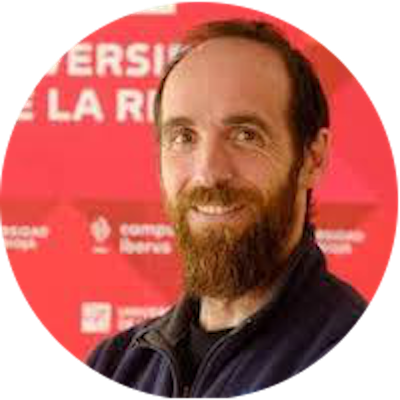
🎓 Eduardo Sáenz de Cabezón
Universidad de La Rioja
Professor from the Department of Mathematics and Computer Science at the University of La Rioja conducts research in the area of Computational Algebra.
He is a prominent science communicator in Spain and Latin America, having authored several books aimed at bringing Mathematics closer to the general public.
Additionally, he won the FameLab scientific monologue competition in 2013, is a founding member of the Big Van Scientists on Wheels group, and hosts the YouTube channel "Derivando," which has over 1.1 million followers. He also contributes to various media outlets such as the program "Órbita Laika" on channel 2, which he hosts, and RNE's program "Gente Despierta."
YouTube channel:
Interview with Eduardo Sáenz de Cabezón
On the occasion of International Pi Day, we will speak with Eduardo Sáenz de Cabezón. We will have the opportunity to hear firsthand his opinions on various topics related to Science Communication and Mathematics in a dynamic and personal interview format.
